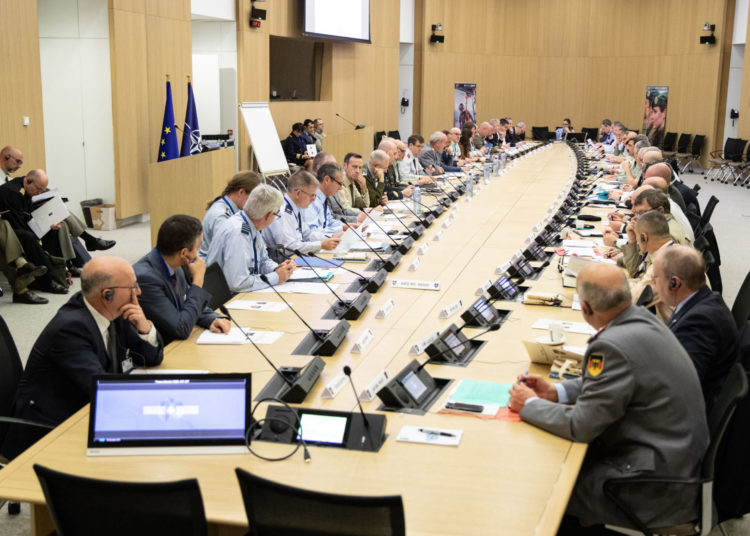Nordic Monitor
Turkey blocked NATO-EU partnership activities including military programs, meetings and workshops and prevented the sharing of classified NATO documents with some EU member states due to a diplomatic dispute, confidential memos have confirmed.
According to military documents obtained by Nordic Monitor, Turkey does not support the NATO-EU partnership in line with a long-term strategy, emphasizes the need for the agreed framework to be applied consistently to NATO-EU cooperation and insists on excluding Cyprus from NATO-EU partnership activities unless an acceptable solution is achieved on the island. In this context Turkey refused to share secret (including unclassified) NATO information and documents with the EU countries that did not sign a security agreement with NATO.
The memos, issued by the Plans and Principles Directorate of the Turkish General Staff in December 2015, revealed that Turkey decided not to show flexibility in allowing the NATO-EU security partnership to function until the EU fulfills its commitments to Turkey on signing the EU-Turkey security agreement and its involvement in the European Defence Agency (EDA), which was vetoed by Cyprus.
The EDA was established in 2004 “to support the Member States and the Council in their effort to improve European defence capabilities in the field of crisis management and to sustain the European Security and Defence Policy (ESDP).”
Confidential memo on blocking NATO-EU programs by the Turkish government:
According to the memos Turkish representatives were instructed to carefully follow the binding rule stipulating that NATO bodies are not authorized to change the dissemination limitation marking of classified NATO documents as “appropriate for EU [Re1 EU]” and to guarantee that the agenda of meetings between military representatives from NATO and the EU were limited to the issues agreed by the political wing of the alliance.
Moreover, Turkish officials at NATO headquarters were also asked to confirm that meetings, workshops and teleconferences between military representatives from NATO and the EU were attended only by EU officials who were provided security clearances in accordance with the NATO-EU security agreement and that EU diplomats were pulled out of NATO meetings in which documents, marked as restricted or above, were distributed.

NATO-EU cooperation covers a wide range of issues, including crisis management, capability development, capacity building and maritime security. In fact, attempts to establish a political framework for NATO-EU cooperation began in 2002, with both organizations signing the declaration on the ESDP, which defined the NATO-EU relationship as a strategic partnership. The 2003 “Berlin Plus” arrangements quickly followed and provided a formal framework for future NATO-EU joint missions.
However, EU–NATO relations entered a protracted impasse after the accession of Cyprus to the EU in 2004. Turkey, a NATO member, refused to share strategic information with the EU and denied the participation of Cyprus in EU missions using NATO infrastructure, whereas Cyprus vetoed the EU–Turkey Security Agreement on the exchange of classified material between the two sides as well as Turkish membership in the EDA. In the end substantial cooperation and synergies between the two organizations were hampered.












